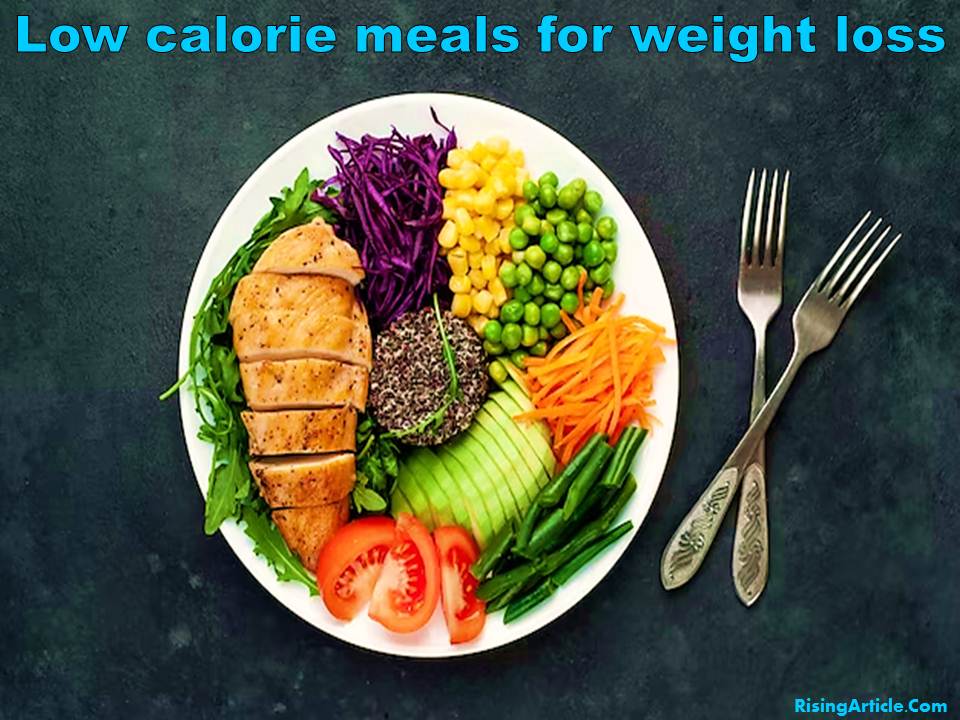Many times, wanting to live a healthier life and losing weight go hand in hand in the ever-changing world of health and fitness. It can be hard to reach and keep a healthy weight, especially for women. But it’s also an empowering path. People who talk about “weight loss for women” talk about more than just numbers on a scale. They talk about a person’s physical, mental, and social health as a whole.
Women can lose weight in a healthy way if they pay attention to the details of what they eat, how much they exercise, and the choices they make about their lifestyle. In order to make personalized weight loss plans for women, it is important to understand the unique physiological and biological factors that affect their bodies. Now that women know more about weight loss, they can start a journey that not only helps them lose weight but also helps them feel good about their bodies, which will improve their health and energy in the long run. Women can lose weight in many different ways, including through self-care, empowerment, and a holistic approach to health. Come with us on this educational trip.
Weight loss for women
 When women talk about losing weight, they bring up a lot of different physical, mental, and social issues. Getting and staying at a good weight is important for your health and looks. Women often face unique problems when they are trying to lose weight, such as changes in hormones and metabolism, as well as social pressures that can affect how they approach health and fitness.
When women talk about losing weight, they bring up a lot of different physical, mental, and social issues. Getting and staying at a good weight is important for your health and looks. Women often face unique problems when they are trying to lose weight, such as changes in hormones and metabolism, as well as social pressures that can affect how they approach health and fitness.
Adopting a holistic method that takes both physical and mental health into account is an important part of losing weight for women. This means putting in place a healthy, well-balanced diet, getting regular exercise, and dealing with any mental or emotional issues that might be causing bad habits.
It is very important to know what hormones do, especially during different times in life like puberty, pregnancy, and menopause. Because changes in hormones can affect metabolism, hunger, and energy levels, it’s important to make weight loss plans that work for each person.
Food is one of the most important parts of losing weight. A healthy diet with a range of nutrient-dense foods can give you the vitamins and minerals you need, keep your energy up, and help control your hunger. Key parts of a long-term and successful weight loss plan are controlling portions, eating mindfully, and picking whole, unprocessed foods.
Including regular physical exercise is also very important. To improve their general fitness, women should do a mix of aerobic exercises, strength training, and flexibility exercises. For long-term success, it’s important to find things you enjoy doing and stick to an exercise schedule.
It’s also important to deal with the emotional and mental elements of weight loss. A complete plan for weight management includes developing self-compassion, having a positive view of your body, and knowing what makes you eat when you’re feeling down.
It is important to know that there is no one-size-fits-all answer and that every woman’s weight loss process is different. Speaking with doctors, nutritionists, and exercise experts can help you get personalized advice and support. For women to lose weight in a healthy way that lasts, they need to slowly make changes to their lifestyle that are good for their physical and mental health and give them long-lasting results.
 Trying to lose weight isn’t just about looking better; it’s also about improving your health, your well-being, and your sense of self-empowerment. For women, this path is often marked by unique problems and things to think about, such as changes in hormones and societal expectations. This article talks about many different aspects of weight loss for women. It includes methods that have been shown to work, nutritional information, and why it’s important to take a whole-person approach that includes mental and physical health.
Trying to lose weight isn’t just about looking better; it’s also about improving your health, your well-being, and your sense of self-empowerment. For women, this path is often marked by unique problems and things to think about, such as changes in hormones and societal expectations. This article talks about many different aspects of weight loss for women. It includes methods that have been shown to work, nutritional information, and why it’s important to take a whole-person approach that includes mental and physical health.
Understanding the Unique Challenges
As women go through different stages of life, like puberty, pregnancy, and menopause, their bodies change in many ways. These changes affect hormones, metabolism, and energy levels, which in turn affects how the body responds to attempts to lose weight. Recognizing and understanding these differences is important for making weight loss plans that work and last.
The Role of Nutrition
A well-balanced, healthy meal is one of the most important parts of losing weight. Women should make sure they eat a range of nutrient-dense foods to get all the vitamins and minerals they need. Some basic rules are to watch your portions, eat slowly, and choose whole, raw foods. Not starving yourself is not the point. Instead, it’s about making healthy choices based on knowledge that fuel the body and support general health.
Physical Activity as a Catalyst

Getting and staying at a healthy weight depends on doing a lot of physical exercise every day. To get fitter generally, women should do a mix of aerobic exercises, strength training, and flexibility exercises. Exercise can become a fun and lasting part of daily life if you find things that make you happy and make them a regular part of your life.
The Mind-Body Connection
Weight loss isn’t just about the body; it has a lot to do with how you feel and think. A healthy way to lose weight includes having a good view of your body, being kind to yourself, and figuring out what makes you eat too much. Meditation and yoga are examples of mindful activities that can help you connect your mind and body in a healthy way, which can lead to long-term success.
Seeking Professional Guidance
Each woman has a different body, so what works for one might not work for another. Health care professionals, nutritionists, and fitness experts can give you personalized advice based on your wants and goals. With professional help, losing weight is safe and successful, and the focus is on making changes to your lifestyle that will last.
The number on the scale shouldn’t be the only thing that women think about when they want to lose weight. It’s about giving women the tools they need to make decisions that put their physical and mental health first. Women can start a life-changing journey to become healthier, happier, and more powerful by taking a holistic approach that includes changes in hormones, nutritional needs, physical exercise, and mental health. Not only losing weight is important, but also learning a lot about your body and adopting a way of life that promotes long-term health.
Best Tips for Weight loss for women
 To reach and stay at a healthy weight, you need to make smart choices about your lifestyle, your diet, and your exercise. Here are some useful tips for women who are trying to lose weight:
To reach and stay at a healthy weight, you need to make smart choices about your lifestyle, your diet, and your exercise. Here are some useful tips for women who are trying to lose weight:
You should start by making weight loss goals that you can actually reach. Long-term success is more likely to come from changes that happen slowly and last.
Balanced Nutrition
A healthy diet should include a range of fruits, veggies, whole grains, lean proteins, and healthy fats. It’s important to watch your portions, and it can be helpful to think about vitamin density instead of counting calories.
Stay Hydrated
Getting enough water not only helps your health, but it can also help you control your hunger. The body can sometimes mistake thirst for hunger.
Pay attention to your body’s signals when it’s hungry or full. Enjoy each bite as you eat slowly, and be aware of what makes you eat when you’re feeling down. This might help you avoid eating too much.
Do a variety of aerobic exercises, such as walking, running, or riding, as well as strength training and flexibility exercises on a regular basis. To make exercise a regular part of your life, find things you enjoy doing.
Prioritize Strength Training
Make strength training a regular part of your life. Adding lean muscle mass can speed up your metabolism and make it easier to lose fat.
Support and accountability
 Get a workout buddy or sign up for an exercise class. Having someone to go on the trip with can keep you going and hold you accountable.
Get a workout buddy or sign up for an exercise class. Having someone to go on the trip with can keep you going and hold you accountable.
Adequate Sleep
Make sure you get enough good sleep. Hormones can get out of whack when you don’t get enough sleep, which can make you crave food more and eat too much.
Managing stress
Long-term stress can make it harder to lose weight. Add stress-relieving activities like yoga, meditation, or deep breathing exercises to your daily schedule.
Regular check-ups with a doctor
Talk to a doctor or nurse to make sure that your plan to lose weight is safe and healthy for you generally. They can give you help that is specific to your needs and medical history.
Be patient and persistent. It takes time to lose weight. Enjoy the little wins along the way, and keep in mind that it takes time for changes to stick. Stay determined, and don’t let short-term failures get you down.
Focus on Victories That Don’t Have to Do with Weight: Keep track of your progress by measuring things other than weight changes, like more energy, better mood, better sleep, and better fitness skills.
Take care of yourself and keep a cheerful attitude. It’s important to be kind to yourself during the weight loss process because it has ups and downs. Stay away from diets that are too strict, and instead choose a way of life that you can keep up for a long time.
Remember how important it is to make these tips fit your specific wants and preferences. For a healthy lifestyle that lasts, losing weight needs to be approached in a way that takes into account the whole person.
Conclusion:
When women want to lose weight, the process is complex and unique, and it goes far beyond quick fixes and fad diets. It’s an all-around effort that includes mental, physical, and social health. The key to getting long-lasting results is to adopt a long-term plan that includes a healthy diet, regular exercise, and careful habits.
It is important to remember that every woman’s body is different and there is no one-size-fits-all answer. It is very important to know and value your body, its signals, and its needs. For long-term success, it’s also important to have a good relationship with food and your body.
Giving people power is a very important part of this process. Women should be able to make decisions that are good for their health without giving in to social pressures or standards that are too high. Being in a group that supports you can give you motivation, support, and a sense that you’re not alone in what you’re going through.
Remember that the goal is not just to lose weight, but to live in a way that is good for your health and well-being in general. As women start their paths to lose weight, may they find strength in self-compassion, the will to keep going even when things get hard, and the knowledge that real change comes from loving and accepting yourself.




